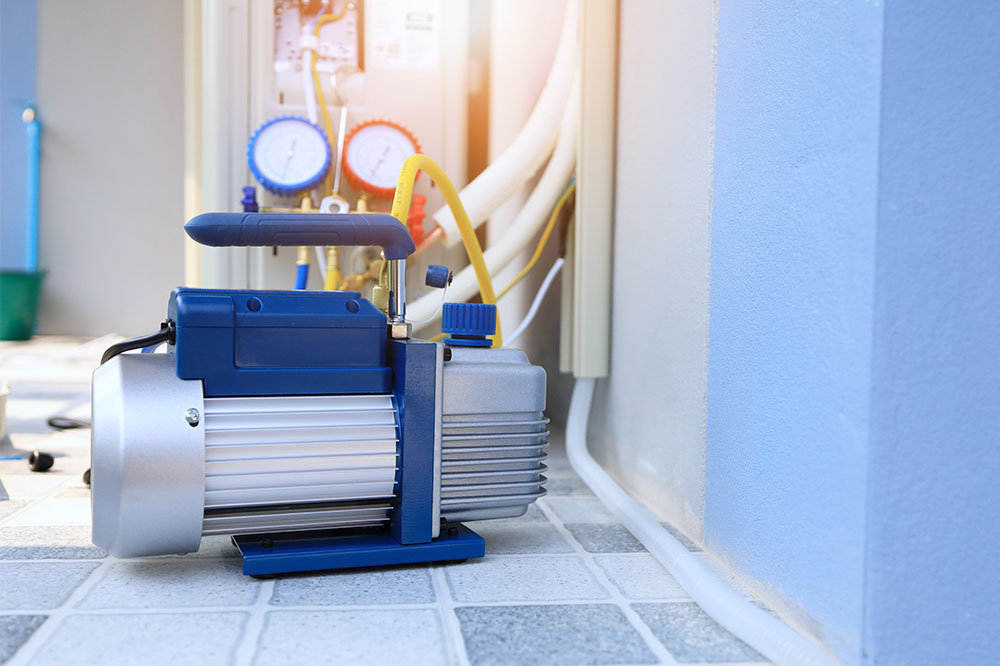
Types of Vacuum Pumps and Things to Consider Before Buying Them
Vacuum pumps are industrial equipment that absorbs air and gas molecules to clean surroundings. For several industries, they are the best companions for drying out moisture and treating water contamination. Pharmaceutical, chemical, plastic, electronics, pulp and paper, and food industries use vacuum pumps daily for vapor recovery, drying, food processing, and manufacturing pharmaceutical products. Depending on their needs and functions, these sectors may choose different vacuum pumps. Check out a few of them below.
Rotary Vane
A rotary vane vacuum pump is a sleek, compact pump suitable for liquids with high boiling points. Removing air molecules from vessels or specific regions is an important task. It involves a cylindrical stator housing a rotor, which, in turn, consists of blades that operate through centrifugal force. Rotary vane equipment is most commonly used in the automobile industry; however, they also play an integral role in manufacturing dispensing machines and air-conditioning units.
Scroll
Scroll vacuum pumps incorporate a pair of spiral scrolls to compress liquids and gasses. While one of these spirals is still, the other rotates around it, facilitating the compression. These equipment do not function on oil; however, they require regular maintenance as they are susceptible to corrosion. The spiral seal should be replaced frequently to ensure the pump’s durability.
Diaphragm
This vacuum pump is called a membrane pump and comprises a membrane whose constant motion causes compression of the gas released from the inlet. Due to corrosion and chemical resistance, these appliances are commonly used in the food industry to pump fluids like water and chocolate, as well as in the chemical and cosmetic industries.
Liquid Ring
A liquid is typically centrifuged against this pump’s walls; the equipment pumps this liquid, and its airtightness is maintained. Consequently, it is widely used in the sugar, petroleum, and mining industries. Liquid ring pumps are used for various purposes, such as extracting moisture and filtering the vacuum.
Turbomolecular
Turbomolecular vacuum pumps entail an electric motor, which rotates the attached blades to remove air molecules. They are typically mounted on magnetic surfaces to increase spinning speed. Since there is no requirement for oil, they are well-suited to fulfill ultra-high vacuum requirements for laboratory analysis and other functions.
Things to consider before purchasing a vacuum pump
Buying a vacuum pump involves many factors, including research, understanding needs, examining flow rate, evaluating corrosion risks, oil requirements, and more so that you buy equipment that best suits your preferences and requirements.
Flow rate
Flow rate refers to the displacement of gas by the vacuum pump per unit of time. Increased flow rate implies the removal of air molecules at a more incredible speed; thus, it is essential to measure flow rate to ensure that your vacuum pump performs optimally.
Understanding requirements
Every industry has different requirements — some vacuum pumps are better suited to specific industries than others. For instance, Rotary vane vacuum pumps are the best fit for enterprises dealing with liquids having high boiling points. Thus, it is advisable to understand your industry’s specific needs before shortlisting a vacuum pump.
Corrosion risk
Some vacuum pumps, such as the Scroll, require more maintenance than others as they are more susceptible to corrosion and wear and tear. The more the need for maintenance, the higher the long-term expenses incurred on the vacuum pump. Before purchasing a vacuum pump, analyze the risk of corrosion and evaluate your annual maintenance costs accordingly.
Oil requirement
Most vacuum pumps require oil for lubrication; however, the amount of lubrication needed differs between different types of equipment. Some vacuum pumps, such as Turbomolecular, do not require oil for lubrication. It is imperative to understand the lubrication requirements of your vacuum pump to estimate the expenses your company would incur to ensure optimal functioning.
Controls
While some equipment requires manual intervention, others are automated, increasing workplace productivity. However, automatic pumps are generally costlier than manual ones. Thus, purchasing a manual or automatic manual pump should be based on your budget, industry, and workforce.
Vacuum pumps serve various industries to remove air and gas molecules and eliminate moisture. The key to purchasing a suitable vacuum pump for your workplace is to analyze your requirements, budget limit, and maintenance and lubrication costs and make a purchase decision accordingly.




